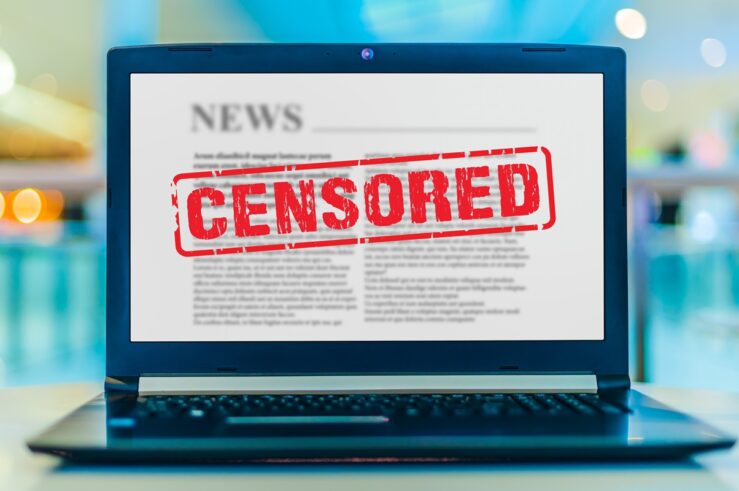ICLE’s Amicus Briefs on the Future of Online Speech
Over the past few months, we at the International Center for Law & Economics (ICLE) have endeavored to bring the law & economics methodology to the forefront of several major public controversies surrounding online speech. To date, ICLE has engaged these issues by filing two amicus briefs before the U.S. Supreme Court, and another in ... ICLE’s Amicus Briefs on the Future of Online Speech
Using Bayh-Dole March-in to Set Patent Price Controls: An Assault on American Innovation
Under the Bayh-Dole Act, the federal government has the right to “march in” on patents on inventions created using taxpayer funds—to require the patentholder to license the federally funded patent to other applicants. The terms of the license must be “reasonable under the circumstances.” The act limits the exercise of march-in to specific circumstances related ... Using Bayh-Dole March-in to Set Patent Price Controls: An Assault on American Innovation
The FTC’s Misguided Campaign to Expand Bayh-Dole ‘March-In’ Rights
The Federal Trade Commission (FTC) has now gone on record in comments to the National Institute of Standards and Technology (NIST) that it supports expanded “march-in rights” under the Bayh-Dole Act (Act). But if NIST takes the FTC’s (unexpected, but ultimately unsurprising) contribution seriously, such an expansion could lead to overregulation that would ultimately hurt ... The FTC’s Misguided Campaign to Expand Bayh-Dole ‘March-In’ Rights
The WHO’s Insufficient Curiosity and Humility
Five months from now, health ministers from the 194 sovereign states recognized by the United Nations (UN) will meet in Geneva to discuss and possibly agree to amendments to the International Health Regulations (IHRs), which are intended to “prevent, protect against, prepare, control and provide a public health response to the international spread of diseases.” ... The WHO’s Insufficient Curiosity and Humility
How the FTC’s Amazon Case Gerrymanders Relevant Markets and Obscures Competitive Processes
As Greg Werden has noted, the process of defining the relevant market in an antitrust case doesn’t just finger which part of the economy is allegedly affected by the challenged conduct, but it also “identifies the competitive process alleged to be harmed.” Unsurprisingly, plaintiffs in such proceedings (most commonly, antitrust enforcers) often seek to set ... How the FTC’s Amazon Case Gerrymanders Relevant Markets and Obscures Competitive Processes
A European Commission Challenge to iRobot’s Acquisition Is Unjustified and Would Harm Dynamic Competition
Once again, a major competition agency, the European Commission, appears poised to take an anticompetitive enforcement action—in this case, blocking Amazon’s acquisition of consumer robotic-manufacturer iRobot. iRobot, headquartered in Bedford, Massachusetts, is an American success story: Founded in 1990 by Massachusetts Institute of Technology roboticists with the vision of making practical robots a reality, iRobot ... A European Commission Challenge to iRobot’s Acquisition Is Unjustified and Would Harm Dynamic Competition
Four Problems with the Supreme Court’s Refusal To Hear the Epic v Apple Dispute
The U.S. Supreme Court this week rejected both parties’ petitions for certiorari in appeals of the 9th U.S. Circuit Court of Appeals’ Epic Games v Apple decision. Many observers—including Epic CEO Tim Sweeney—have marked this as an unmitigated loss for Epic. That’s partly right. The district court had correctly rejected Epic’s federal antitrust claims against ... Four Problems with the Supreme Court’s Refusal To Hear the Epic v Apple Dispute
The Conundrum of Out-of-Market Effects in Merger Enforcement
Section 7 of the Clayton Act prohibits mergers that harm competition in “in any line” of commerce. And, indeed, the Supreme Court’s decisions in Philadelphia National Bank and Topco are often cited on behalf of the proposition that this means any single cognizable market, and that anticompetitive effects in one market cannot be offset by ... The Conundrum of Out-of-Market Effects in Merger Enforcement
FTC v. Illumina/Grail – A Rare FTC Merger Victory? (Actually, a Loss for Consumers)
Although it was overshadowed by the Federal Trade Commission (FTC) and U.S. Justice Department’s (DOJ) year-end release of the 2023 merger guidelines, one should also note the abrupt end of the FTC v. Illumina/Grail saga. The saga finished with the FTC’s Dec. 18 press release announcing that Illumina decided on Dec.17 to divest itself of ... FTC v. Illumina/Grail – A Rare FTC Merger Victory? (Actually, a Loss for Consumers)
Three Problems with Accelerated Access: Will They Be Overcome?
This post discusses three important problems with the Food and Drug Administration’s (FDA) accelerated-approval process. The first is that regulatory authorities and patient groups maintain that, legally, the standards of accelerated approval are the same as standard approval. Yet from a risk perspective, the standards are quite different; by shifting risk taking from regulator to ... Three Problems with Accelerated Access: Will They Be Overcome?
The Porcine 2023 Merger Guidelines (The Pig Still Oinks)
Well, they have done it. On Dec. 18, the Federal Trade Commission (FTC) and U.S. Justice Department (DOJ) issued their final 2023 merger guidelines, as an early New Year’s gift (nicely sandwiched between Hanukkah, which ended Dec. 15, and Christmas) of the porcine sort. The two agencies try to put lipstick on this pig by ... The Porcine 2023 Merger Guidelines (The Pig Still Oinks)
A Consumer-Welfare-Centric Reform Agenda for the Federal Trade Commission
As we approach a presidential election year, it is time to begin developing a comprehensive reform agenda for the Federal Trade Commission (FTC). In that spirit, this post proposes 12 reforms that could be implemented by new leadership, either through unilateral action by a new chair or (in some cases) majority votes of the commission. ... A Consumer-Welfare-Centric Reform Agenda for the Federal Trade Commission
















